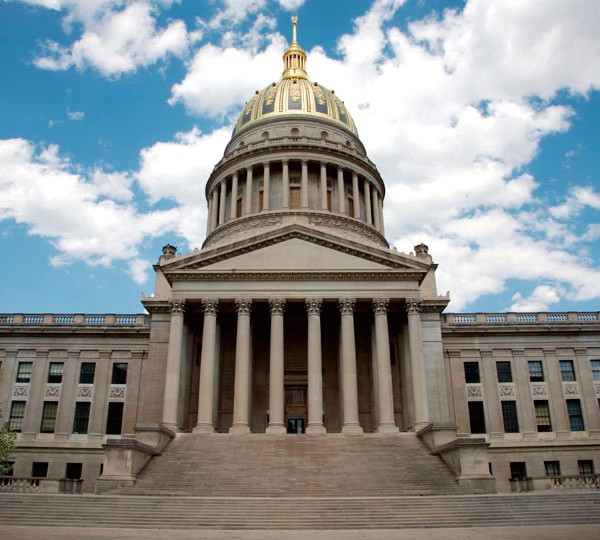CHARLESTON — Two local lawmakers participating in the impeachment proceedings against four state Supreme Court justices shared contrasting thoughts on the pace of the historic occurrence.
Delegate Barbara Evans Fleischauer, D-Monongalia, is Judiciary Committee minority chair and sits at the front dais with chair John Shott, R-Mercer, who’s running the hearings, and vice chair Roger Hanshaw, R-Clay.

While there are matters to consider about three of the justices, she said there’s enough evidence to proceed with articles of impeachment for suspended and federally indicted former Chief Justice Allen Loughry, and no reason to delay that.
Delegate Amy Summers, R-Taylor, also sits on Judiciary. She emphasized she’s a nurse, not a lawyer, and has unanswered questions about the evidence and the process. She wants those questions answered before making decisions that could affect four justices’ careers.
She expects that a Monday executive session of the committee will provide some clarity and direction.
Fleischauer urges vote
When the House impeached state Treasurer A. James Manchin in 1989, Fleischauer said, the hearings took only 2½ weeks. These hearings already have taken five.
That’s why, on Wednesday, committee Democrats released their own articles of impeachment, she said.
“It never made sense to lump everybody together, to us,” she said. “He’s the only one that lied; he’s the only one that stole furniture.”
All the justices indulged in lavish spending for their offices, she said, but that may not rise to the impeachable level. “It seemed so obvious. He was the one that’s head of the group that’s supposed to interpret our law and he’s violating the law on a daily basis with the cars.
Along with the testimony they have in hand so far, she said, there’s the Judicial Investigation Commission’s clearing Justices Robin Davis, Margaret Workman and Beth Walker of ethic charges, the federal indictment of Loughry and the legislative audits detailing improper use of state vehicles by Loughry and recently resigned Justice Menis Ketchum, who pleaded guilty to a federal charge of defrauding the state regarding the vehicle use.
“We felt like we could move on this and we think our system is designed to have the judges elected.” Stringing it out could lead to three or four court appointments by Gov. Jim Justice.
Fleischauer mentioned a sticking point that’s old news to members but maybe not to the public. When the committee began the process in late June, Democrats agreed to allow Shott to formulate the rules, modeled on the 1989 rules for Manchin’s hearings.
Staff was handed the rules just before a long meeting, she said, and one small difference was overlooked. It says no motion for articles of impeachment will be considered until committee counsel tells the chair that presentation of all evidence has been completed.
That gives the attorneys power beyond what House rules typically grant, she said, and allows the process to drag out. “When does counsel decide what we can talk about? … It’s just hard to believe it wasn’t on purpose.”
She’s worried about the consequence for the state if it does drag on. “What does this mean for the stability of the court? Can they make any decisions right now?” What happens with a court of three? “If we stretch this out and stretch this out, I don’t think it’s going to be really good for our state.”
Summers mulls case
Summers said that while the hearings have spanned five weeks, they’ve only been in chambers six days. The pace has allowed working delegates to keep their jobs.
She doesn’t take the charges lightly. “I think it’s very concerning.” But she and others aren’t happy the Democrats drew up their own articles while questions remain unanswered. “It’s disrespectful of the process.”
She admits she’s not familiar with the legal process. Are the federal indictments and testimony presented by others about Loughry sufficient to draw up charges, or do they need to see direct evidence such as fuel receipts and emails?
Stretching out the hearings and asking witnesses to come in possibly four times instead of one creates unnecessary burdens, she said. And do they want to have the Senate try four separate cases instead of just one?
“We need to be open and fair and really think it through.”
Lavish spending may not be reason enough to impeach, she said. And there’s an amendment going before the voters in November to enable the Legislature to oversee the courts’ budget that will address the spending problem in the future.
If it’s proved that Loughry did such things as use a state card to fill the gas tank of a state car, and accept reimbursement for the same trip, she said, that’s fraud. “That’s not the kind of person we want to be on our Supreme Court.”
She doesn’t think Republicans want to drag things out just so the governor — a former Democrat and frequent party changer — can appoint justices. The timing is unfortunate but that’s no reason to rush it.
The committee’s executive session Monday night, she said, is intended to see where they’ve been and where they need to go. It will involve both parties but be closed so they can talk freely.
She respects Shott’s leadership. “I’m very proud to serve on that committee. … We’re trying to do what’s right and the best thing without political pressure, and we will continue to do what’s right. I’m honored to be on it.”




